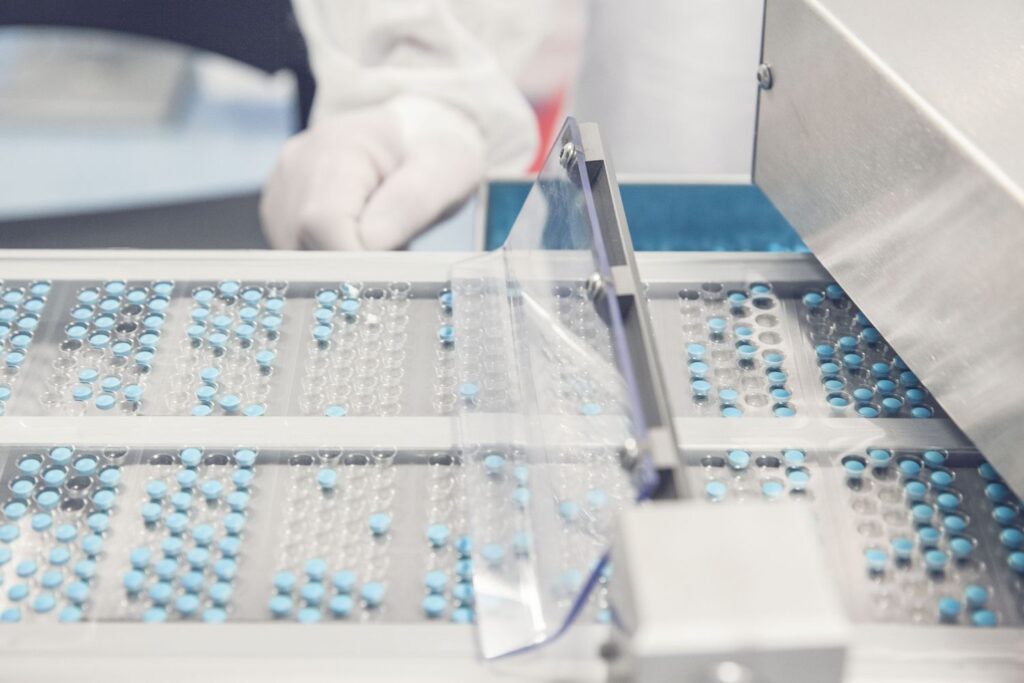Cancer treatment cannot be separated from the support of drugs. Taking drugs according to the symptoms can inhibit the growth of cancer cells in the body. In the current medical field, the most widely used anticancer medicine include chemotherapy drugs, traditional Chinese medicine, biopharmaceuticals and targeted therapy.
APIs are the core components of drug production, the purity and function of APIs are key factors affecting the overall success of anticancer treatment. When developing anticancer drugs, researchers make formulations according to the proportion of specific raw materials, and make sure the purity of these APIs must absolutely meet various established standards. Understanding the relationship between anticancer APIs and anticancer drugs can help the accuracy of drug development, which is also the basis for effective targeting and treatment of diseases.

What Are the Roles of API in Anticancer Drugs?
Anti-cancer drugs are classified according to their mechanism of action, and generally include chemotherapy drugs, targeted therapy drugs, immunotherapy drugs, and hormone therapy drugs. Chemotherapy drugs work by disrupting cells from constantly dividing, which can slow or stop the growth of cancer cells. In contrast, targeted therapy drugs target specific molecular or genetic factors that lead to the progression of cancer. In simple terms, they use drugs to more accurately identify and attack cancer cells, with almost no effect on healthy cells. Immunotherapy uses the body’s own immune system to fight cancer, destroying cancer cells by enhancing the body’s own immune system. Finally, hormone therapy drugs are used to treat hormone-sensitive cancers, such as breast cancer or prostate cancer. It can be used as an adjuvant treatment for cancer and reduce the chance of cancer recurrence.
APIs can be a bridge to the success of anticancer drugs, but there are still some critical factors that affect them, and these challenges cannot be ignored.
High Quality and Purity Standards
Cancer drugs require APIs of extremely high purity to ensure that the drug works and that the treatment is safe for patients. Even the lowest levels of impurities can cause serious side effects or compromise the drug’s therapeutic effect. In addition, to ensure that cancer APIs comply with domestic or international regulatory standards, quality control and testing throughout the development process require very strict control and supervision of relevant personnel to prevent adverse consequences.
APIs Made of Complex Molecular Structures
In targeted therapy, many anticancer drugs are developed based on interfering with specific molecules necessary for tumor growth and progression, such as enzymes, receptors or protein kinases, so that precise stimulation will produce fewer side effects. However, targeted therapy drugs usually involve more complex molecular structures, so the technical requirements are very high. For example, monoclonal antibodies and small molecule inhibitors used for targeted cancer therapy have highly specialized structures.
Issues with Large-scale Production of Anticancer Drugs
When it is necessary to formally invest in large-scale production of anticancer active pharmaceutical ingredients (APIs) from laboratory-scale research, how to maintain consistent quality, complete efficacy and safety are inevitable problems. The molecular structure of API substances may not be stable and will undergo qualitative changes during the production process. Therefore, the management and production personnel involved in the pharmaceutical process must be very strict, and the production equipment of pharmaceutical companies must also meet medical standards. In addition, the stability and safety of APIs throughout the production and storage process are also key considerations.
Drug Intellectual Property and Patent Issues
The research and development process of developing new anticancer drugs requires the cooperation of various experts to screen, and then go through complex procedures such as animal experiments and clinical trials to obtain approval from government regulatory authorities. In addition, there are potential litigation risks for developed drugs. On the one hand, obtaining patents is to weaken these risks, and on the other hand, it is to prevent vicious competition.
These challenges are not the only ones that exist for the use of APIs in cancer drugs. Other uncertainties include high drug costs and legal and regulatory complexities.

What Are the Application of Anticancer APIs?
Capecitabine
Capecitabine is often made into tablets and converted into 5-FU in the body to exert therapeutic effects. It is widely used in the treatment of colon cancer, breast cancer and gastric cancer. It is mainly suitable for adjuvant treatment of patients with inoperable advanced stage, Dukes C stage, and primary tumor radical surgery.
Cyclophosphamide
Cyclophosphamide is a nitrogen mustard derivative that is hydrolyzed by excessive phosphamidase or phosphatase in the liver or tumor after entering the human body and becomes an activated type of phosphoramide nitrogen mustard. It can effectively treat lymphoma, leukemia, breast cancer and ovarian cancer, and can also treat certain autoimmune diseases, such as lupus nephritis.
Cytarabine
Cytarabine is also a pyrimidine antimetabolite drug in the cell S proliferation phase, which interferes with cell proliferation by inhibiting the synthesis of cell DNA. It is mostly used in the treatment of acute leukemia, and also has certain effects on malignant lymphoma, lung cancer, and digestive tract cancer.
Dasatinib
Dasatinib is a tyrosine kinase inhibitor (TKI) that inhibits multiple tyrosine kinases and blocks the growth of cancer cells. It is indicated for chronic myeloid leukemia that is resistant or intolerant to treatment regimens including imatinib mesylate.
Enzalutamide
Enzalutamide is an androgen receptor inhibitor that competitively inhibits androgen binding to the receptor and inhibits nuclear translocation of the androgen receptor and its interaction with DNA. It is most commonly used to treat metastatic castration-resistant prostate cancer (mCRPC).
SED Ingredients is professionally qualified to provide the above API. If you have any needs, please feel free to contact our experts to provide you with an instant quote.
Market Trends of Anticancer API
The development of anticancer drugs will continue to show an upward trend in the future. The main reasons include the increasing incidence of cancer and the increasing demand for drug types due to the development of modern medicine.
Customized Cancer Treatment
Personalized cancer treatment refers to the use of each patient’s symptom information to develop specific drugs that are different from general drugs. Cancer treatment usually depends on the type of cancer, tumor size, and stage of spread. Since cancers are different, if everyone uses the same drug, the treatment effect may not be so ideal. In addition, cancers have different genetic changes due to different genes. Different cancers have different genetic makeups and require differentiated treatments, and in this process, different anti-cancer APIs are needed.
Application of AI technology
The development of artificial intelligence is increasingly used in the medical field. In the field of oncology, AI can analyze large amounts of data and identify complex patterns to predict, diagnose and recommend cancer treatments, providing a data basis for more accurate selection of the right therapeutic drugs and APIs.
Meet Your API Needs at SED Ingredients
The continued development of anti-cancer APIs is a very positive and rewarding opportunity to advance cancer treatment and improve patient outcomes. From targeted therapies to immunotherapies, the demand for high-quality APIs continues to grow, driven by advances in precision medicine, stricter regulatory standards, and the need for innovative solutions to combat the cause of death from cancer.
At SED Ingredients Ltd, we are committed to meeting this demand by providing high-quality anti-cancer APIs that meet the highest industry standards. With our strong manufacturing capabilities and expertise, we ensure that every API delivered meets strict requirements for purity, efficacy, and safety. Our ingredients carry GMP, ISO 9001 and DMF certifications, as well as global regulatory standards, including FDA and EMA certifications.
If you would like to discuss your API needs or explore how we can support your project, please feel free to contact us.
